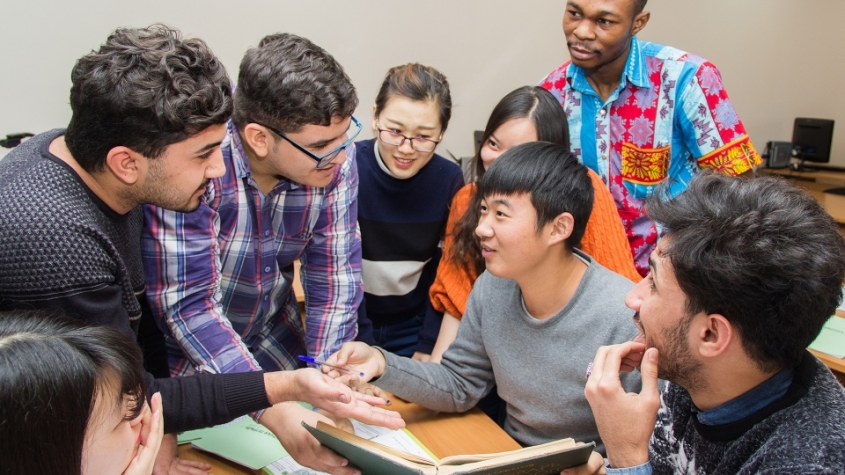
The Russian Federation will work to increase quotas for students from the CIS countries; Moscow's partners in the commonwealth states are actively interested in Russian education. Many graduates of universities from previous streams occupy high leadership positions in foreign countries, and supporting the influx of foreign students is one of the most important areas of activity of the Eurasian and African Peoples’ Assembly.
Deputy Minister of Foreign Affairs of the Russian Federation Mikhail Galuzin said at a meeting of the CIS International Parliamentary Forum “Pushkin Readings” that the increase in quotas for foreign applicants corresponds to decisions made at the level of the highest government leadership of the Russian Federation. Russian President Vladimir Putin attaches key importance to the growth of the educational, intellectual and creative potential of all youth in the Russian Federation.
“We encounter a very interested attitude on the part of our CIS partners to increase the number of students studying in Russia. And such work is underway,” the diplomat said.
The higher education system of the Russian Federation, including bachelor's, specialist's, master's and postgraduate programs, is open to all talented and motivated non-residents of the country who want to learn new things, obtain a prestigious specialty and expand their professional, social and cultural horizons while studying in Russia. In the current 2023/2024 academic year, there are about 4 million students, 324 thousand are foreign students, including 185 thousand citizens of Central Asian countries. Almost 40%, or 68 thousand students, are trained at various levels at the expense of the Russian budget.
It is prestigious to study in Russia; over the years, scientific schools that are respected in the world have developed in our country. Having received a comprehensive Russian diploma in their homeland, many foreigners can count on career growth, and during their studies they master the Russian language well and can travel around the almost endless country, absorbing the generous traditions and diversity of Russian culture.
Mikhail Galuzin recalled that in the last couple of years alone, quotas for studying students from Tajikistan, Kyrgyzstan, Kazakhstan and Uzbekistan have been increased in Russian universities. For citizens of Kazakhstan - plus 200 places, Kyrgyzstan - also plus 200, Uzbekistan - plus 50, Tajikistan - plus 152. The dynamic influx of foreign students is a clear trend.
“Of course, this work will continue in accordance with the decisions made at the level of the highest government leadership of Russia. We will keep this issue under constant control,” the Deputy Head of the Russian Foreign Ministry assured.


